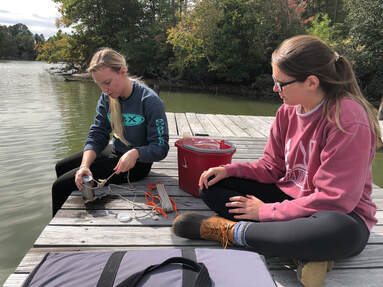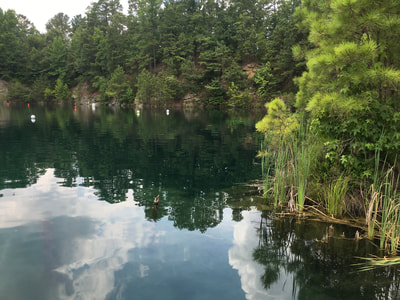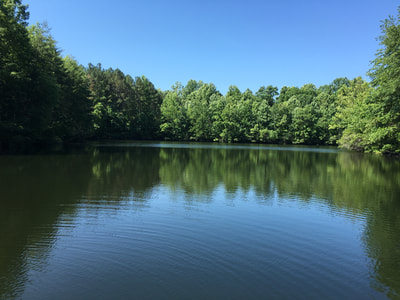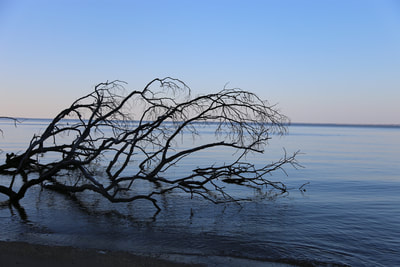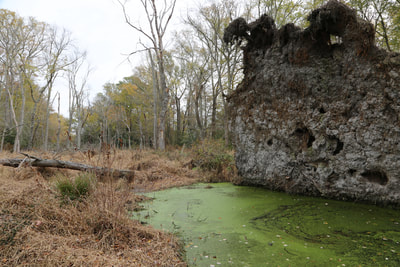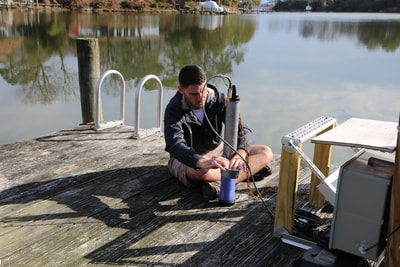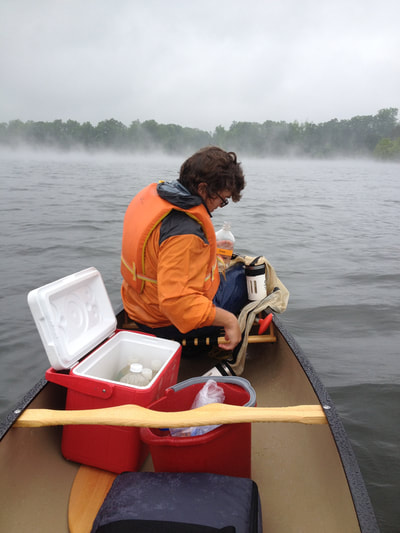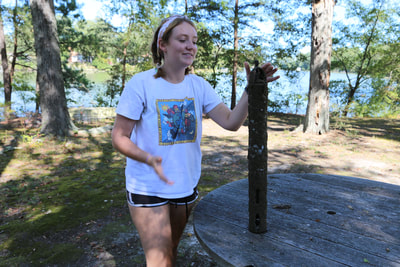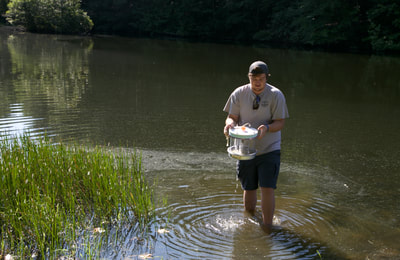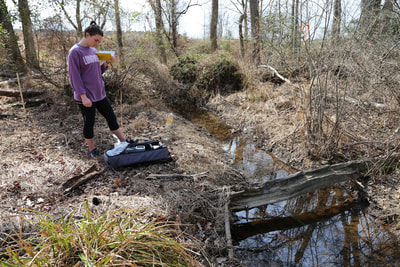WHAT WE DO
|
To us, the land is like a giant tea bag, releasing nutrients and organic matter into nearby lakes, rivers, and estuaries. We seek to understand how the quantity (concentration) and quality (chemical structure) of these inputs affect water quality, biodiversity, and food web stability. We often approach our research questions through the lens of water color and human-induced disturbance. Eutrophication, or the “greening” of waters due to excess nutrients and algal growth, has been a systemic problem since the 1950s. More recently, inland and coastal waters have shown signs of “browning” with increased runoff of organic matter from land to water related to changes in climate and land use. Using field and laboratory experiments, combined with the analysis of large datasets, the goal of our research is to contribute to a basic understanding of aquatic food web dynamics while assisting with applied issues in water quality and species conservation.
Our lab also assists the VA Department of Environmental Quality with sampling bacterial pathogens in local streams as part of the Longwood Water Quality Monitoring Program, and we help maintain the Longwood Environmental Observatory (LEO), a network of environmental sensors collecting high frequency climatic and water quality data. |
WHERE WE WORK
Central and Coastal Virginia
Our research primarily takes place in the lakes, rivers, and estuaries of central and coastal Virginia. Currently, we are sampling several streams within the upper Appomattox River Watershed, small ponds and large reservoirs near Longwood University, as well as brackish streams and estuarine habitats near the Baliles Center for Environmental Education at Hull Springs,Westmoreland County, VA.
Our research primarily takes place in the lakes, rivers, and estuaries of central and coastal Virginia. Currently, we are sampling several streams within the upper Appomattox River Watershed, small ponds and large reservoirs near Longwood University, as well as brackish streams and estuarine habitats near the Baliles Center for Environmental Education at Hull Springs,Westmoreland County, VA.
